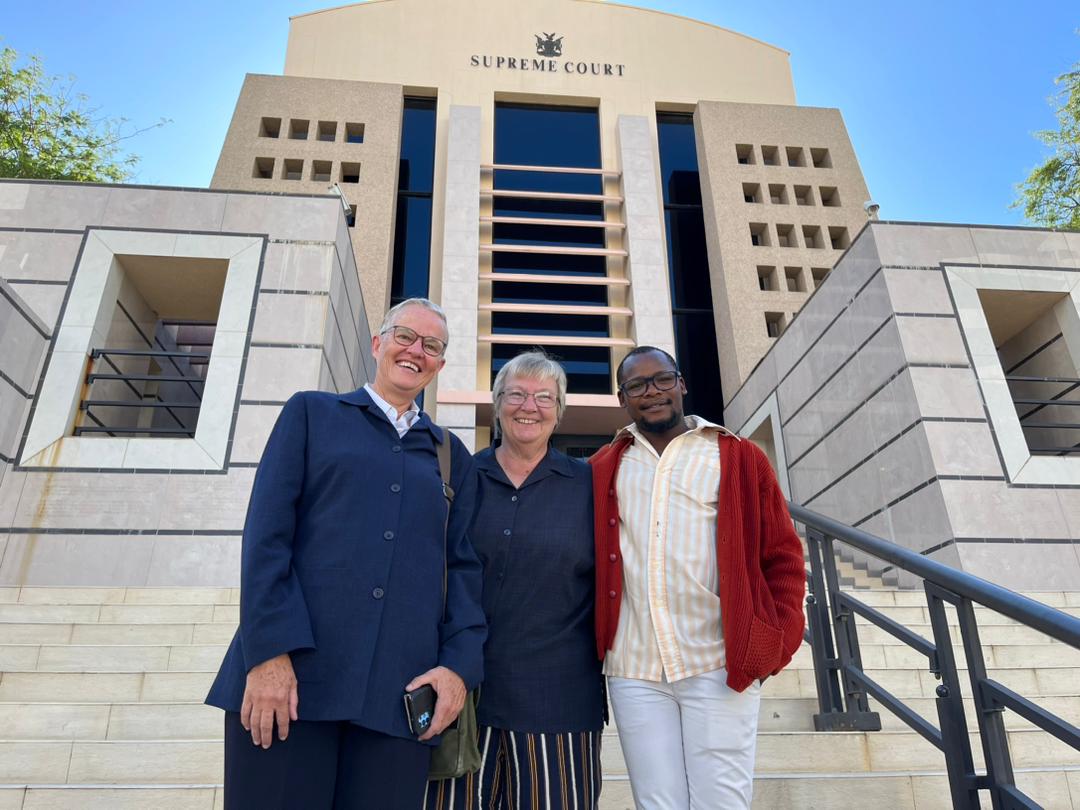
Windhoek, Namibia: 16 May 2023 – Today, four out of a five-panel bench in the Supreme Court of Namibia pronounced against the unconstitutional denial of immigration status to non-Namibian spouses in same-sex marriages. The judgment delivered by Judge Shivute CJ set aside the High Court decision of 20 May 2021 and ordered the Government of Namibia to recognise marriages concluded outside Namibia regardless of sexual orientation. The Court recognised Daniel Digashu and Seiler-Lilles as “spouses” as per section 2(1) of Namibia’s Immigration Act No. 17 of 2006. The Court also noted that the differential treatment of the spouses breached the constitutional rights to equality and dignity of the appellants.
“This Court has made it clear that this recognition of the equal worth of all human beings is at the very root of the Constitution and that this is ‘further echoed and implemented in various articles of Chapter 3, and others of the Constitution’. The value attached to dignity is at the very heart of our constitutional framework and fundamental to it as a value of central significance, and others of the Constitution.”
“I am utterly ecstatic about the judgment. Love has won, and this means the world, not only to our families as litigants but, I’m sure, also to the LGBTQI+ people in the country, who have been showing up for us and the cause. You are all seen and appreciated, and this one is a win for all of us,” said Daniel Digashu.
“I am crying tears of joy. The tension from the past seven years has eased and I can now call Namibia my home. I am so happy! Seven years of struggle is over, and we won not only for us but for so many other people as well,” said Anita Seiler-Lilles.
“I am so relieved that Daniel and Anita finally get to be with their loved ones without worrying about being separated from their families. I am sorry that they had to wait so long,” said Anna Mmolai-Chalmers from the Southern Africa Litigation Centre.
“The Supreme Court applied the common law principle that if a marriage is duly concluded in a foreign jurisdiction, it must be recognised in the country. The Court held that where the interpretation of legislation impairs the ability of spouses to honour their obligations to one another, that infringes their rights to dignity and equality,” said Anneke Meerkotter, Executive Director of the Southern Africa Litigation Centre. “The Namibian Supreme Court has set an important example, interpreting legislation in accordance with the core principles of constitutional interpretation and independent adjudication, thus avoiding irrelevant considerations relating to public opinion, and unfounded allegations raised by the government about public policy. Instead, the Court steered the argument back to the history of discrimination in Africa and the necessary constitutional reforms that emphasised transition to dignity and equality without discrimination.”
Background
In August 2017, Daniel Digashu and Seiler-Lilles approached the High Court of Namibia after the Ministry of Home Affairs and Immigration denied Daniel Digashu (a South African citizen), and Anita Elfriede Seiler-Lilles (a German citizen) a work permit and immigration status. Respectively, based on their same-sex marital status. The two cases were consolidated and set to be heard at the same time on 20 May 2021. A full bench of the Namibia High Court heard arguments on the two cases relating to denying immigration status to non-Namibian spouses, including the immigration status of a child adopted by Digashu and Potgieter. On 20 January 2022, the High Court of Namibia dismissed both applications but granted immigration status to the minor. For more details on the two cases, read the Fact Sheet here.
Advocates Heathcote and Jacobs and Carli Schickerling represented Digashu and Seiller-Lillies. The case was supported by the Southern Africa Litigation Centre and Michaela Clayton. For more information, reach out to Anna Mmolai-Chalmers at annam@salc.org.za
ISSUED BY THE SOUTHERN AFRICA LITIGATION CENTRE



